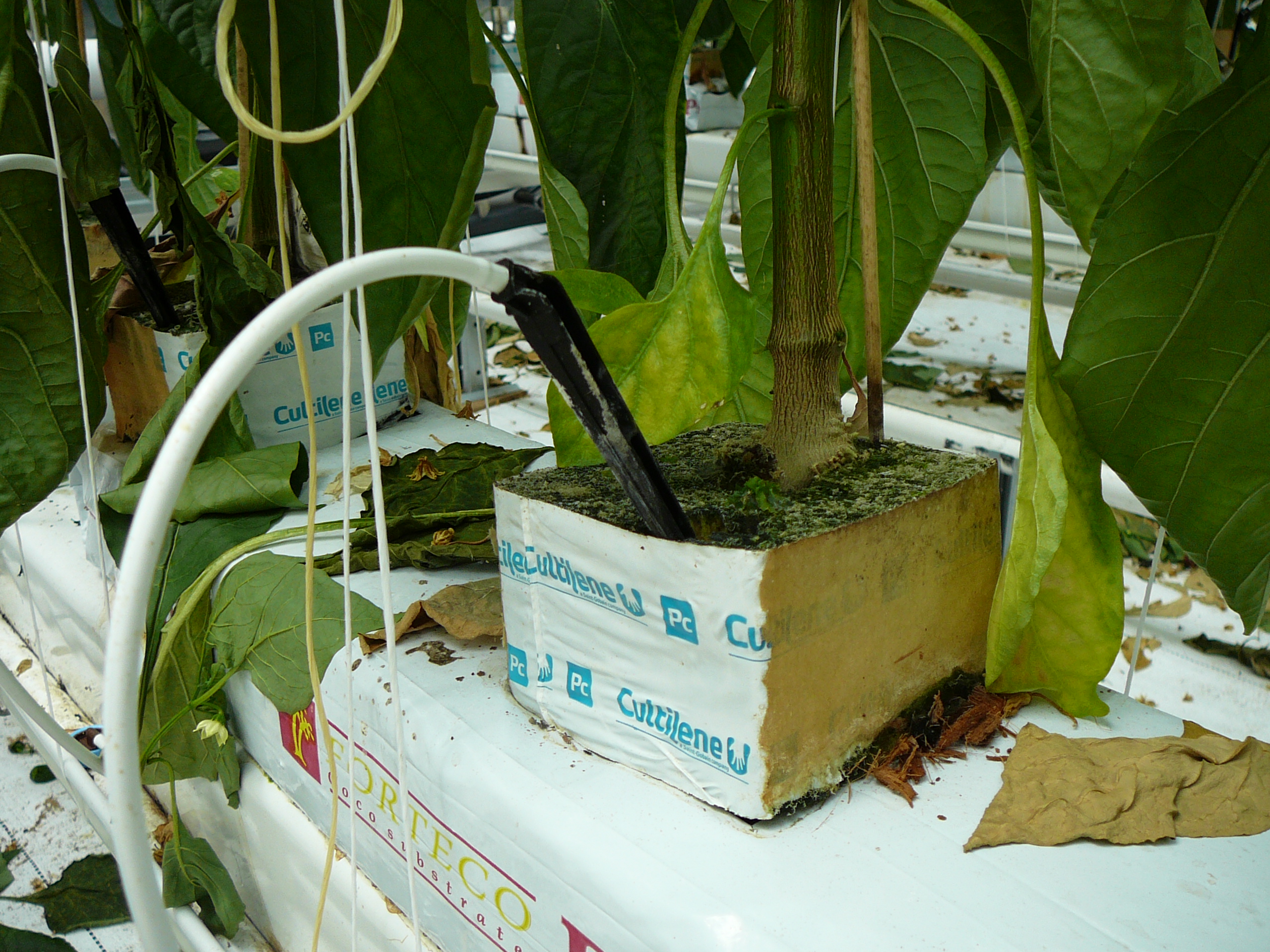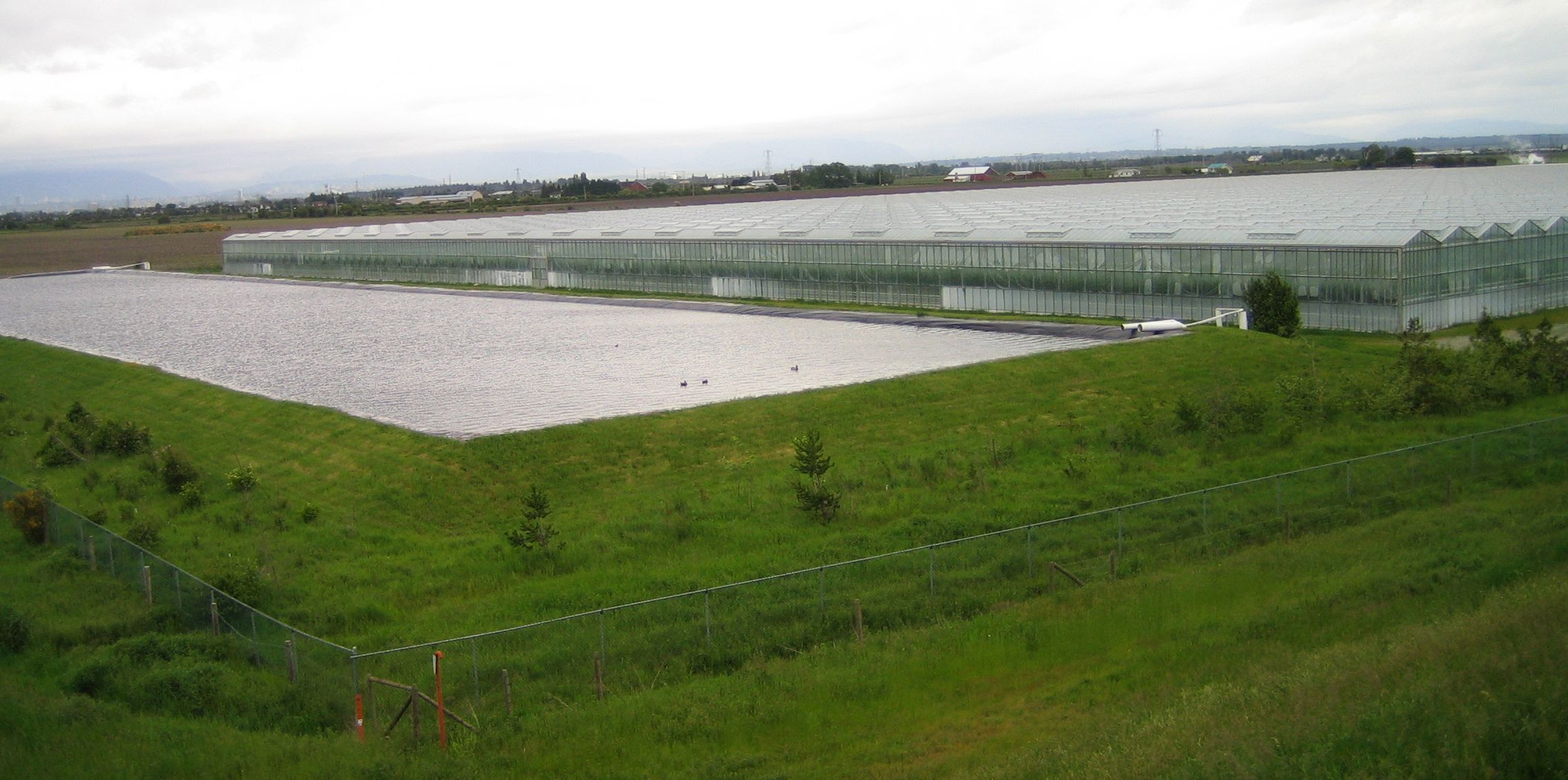Metro Vancouver Agricultural Water Forum: BC Greenhouse Growers’ Perspective on Water for Agriculture – reflections by Linda Delli Santi
Note to Reader:
Held in November 2016, the Metro Vancouver Agriculture Water Forum included a panel session titled Farmers’ Perspectives on Water for Agriculture. Reflections by Linda Delli Santi, Executive Director of the BC Greenhouse Growers’ Association, are reproduced below.
Water Supply and Use – An Overview
“On our greenhouse farms we use the roof rain water, we collect it in ponds built as part of our storm water management plans,” stated Linda Delli Santi.
 “We recirculate the over drain, the water the plants don’t use when irrigated, mix it with the rain water and then add fresh water. Our fresh water is either well water or potable municipal water.”
“We recirculate the over drain, the water the plants don’t use when irrigated, mix it with the rain water and then add fresh water. Our fresh water is either well water or potable municipal water.”
“Many of our members have sited on city water as in some areas well water is not optimal for irrigating our plants.”
2015 Drought and the Water Sustainability Act
“We had a measure of worry during the summer of 2015 with the drought conditions and possible water shortages, especially those greenhouses on municipal water,” continued Linda Delli Santi.
 “Within the new Water Act greenhouse agriculture is not included as an agricultural water use but as an industrial water use. In the new Act there is an assurance to agriculture regarding access to water, a reserve, but given the fact that many of our growers are on municipal water we are not included in those assurances from the Provincial Government as we are not the first purveyor of the water.”
“Within the new Water Act greenhouse agriculture is not included as an agricultural water use but as an industrial water use. In the new Act there is an assurance to agriculture regarding access to water, a reserve, but given the fact that many of our growers are on municipal water we are not included in those assurances from the Provincial Government as we are not the first purveyor of the water.”
“I see these two issues as the biggest challenges we face for our future farm water supply. Beyond these issues with the new Water Act some of our members are also struggling with their well registrations.”
Application of Technology
“The greenhouse sector has embraced technology and practices for the sustainable use of water from research all over the world,” emphasized Linda Delli Santi.
“We drip irrigate, collect the over drain and clean and reuse it. Many greenhouse growers weigh their plants at stations throughout the greenhouse to make decisions on when the plants need water.”
“We will monitor these international technologies and practices to have continuous improvement.”
Water Quality Considerations
“The greenhouse sector acknowledges the cost of producing potable water and also acknowledges that we do not necessarily need potable water for irrigation.”
“We cannot use water from the ditches as many field farmers do, but we could use river water.”
“Ditch water may have high levels of salt and coliforms, and therefore would not be permitted within our food safety audits.”
“We would require the river water to arrive somewhat clean and filtered for debris but as we use drip irrigation it is not necessary to use potable water, the irrigation does not touch the edible portion of our plants, the fruit.”
A Look Ahead
“We would like to see a source of river water, non-potable water piped directly to our farms. This is not a new idea, many cities in the world have two water supplies, potable and non-potable readily available to residents,” concluded Linda Delli Santi.
About Linda Delli Santi
Linda Delli Santi was a city girl and stay at home mom – she often jokes her husband bought her a job when he purchased their first commercial vegetable greenhouse and left her to run it.
She grew beefsteak tomatoes, then red bell peppers, and after nearly 30 rewarding years producing food for British Columbians, she retired. From Farmer to Executive Director, Linda took on the management role for the BC Greenhouse Growers’ Association in 2010.
Linda advocates for BC greenhouse vegetable growers on such issues as the carbon tax, labour, electricity rates, and compliance with regulations such as the Agricultural Waste Control Regulations and the Water Sustainability Act.
In 2007 Linda became chair of the Canadian Horticulture Council Greenhouse Committee, advocating for Canadian Greenhouse Farmers on such issues as a definition of a vegetable greenhouse, a Canadian PACA, Trade, and Pest Control Regulations.
Linda also sits on the Horticulture Value Chain Round Table and a number of Agricultural Advisory Committees.




